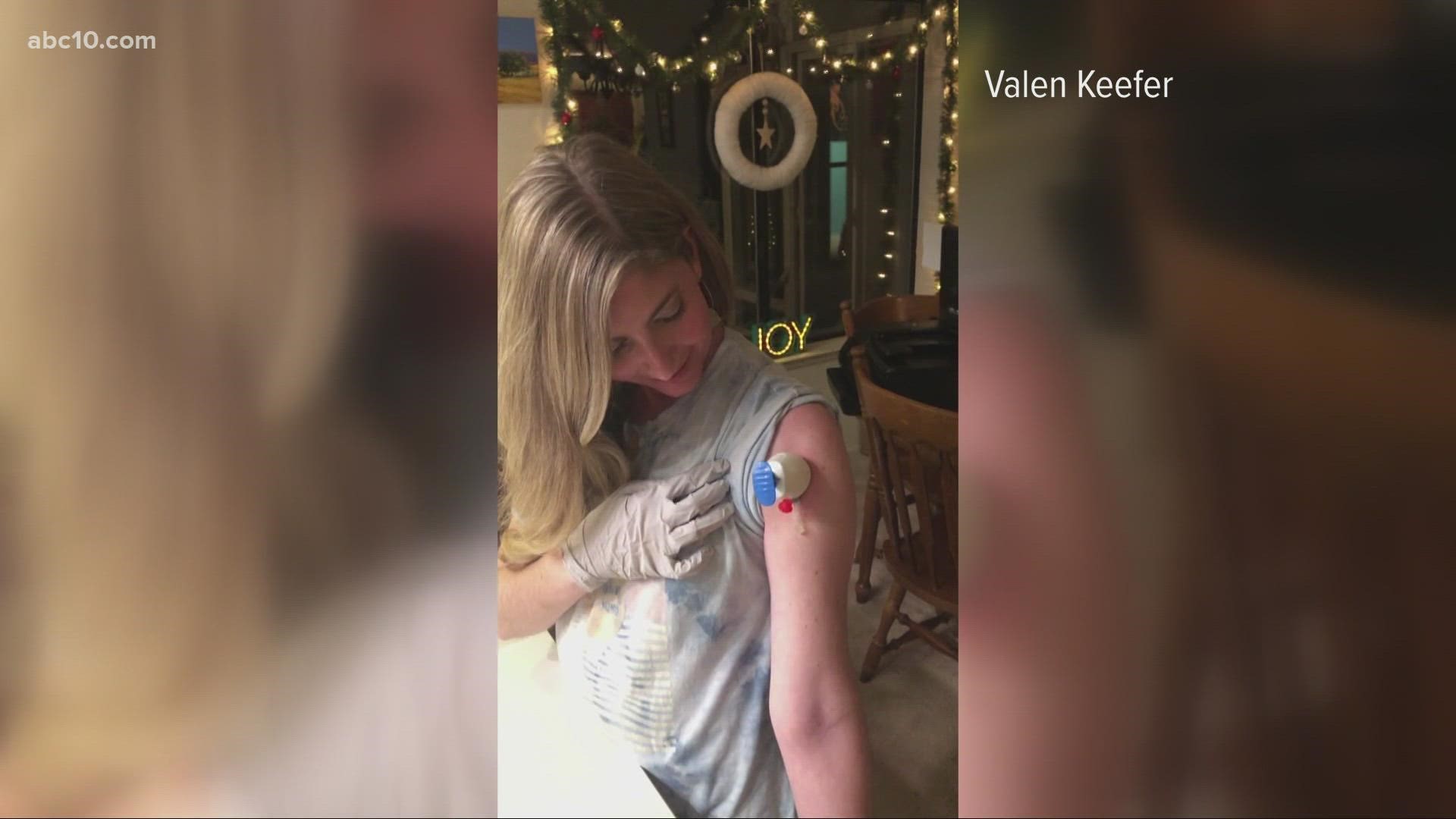SACRAMENTO, Calif. — Back in May, ABC10 interviewed Valen Keefer, who lives in Auburn and is a double transplant patient.
At the time, a study found those who are immunosuppressed, like Keefer, didn’t get much protection even with both doses of a COVID-19 vaccine.
Keefer is involved in a Johns Hopkins University study that is searching for a way to better protect the immunosuppressed. Based on its findings, the CDC was able to approve a third dose or booster for those compromised. Just recently, she received her third dose.
“It made me relive the emotions I had when I got the first dose, and I remember I had tears. I was really emotional,” Keefer said. “This is really exciting, its giving us a chance to get on the same page as everyone else.”
Johns Hopkins Transplant Surgeon Dr. Dorry Segev is working on the study. He said there are two types of boosters, one for people like Keefer who didn’t have a good immune response initially and need a third shot to help them get closer to the level of people who have a normal immune system.
Then there’s another that’s for durability. That’s the one that people will possibly need to get eight months after their second dose to help them continue to fight off the virus. Researchers are still looking into that. Immunosuppressed or not, Segev said everyone needs to take precaution.
“We don’t want to be with a vaccine and without a mask, Segev said. "Having the vaccine and having the mask doesn’t give us 100% protection, but gets us closer to being protected. It reduces the chance that we get this horrible virus, reduces the chance that we give it to other people, reduces the chance that we have a major problem should we get this virus.”
Keefer said she didn’t have any symptoms outside of a sore arm with her third dose. She said being a part of the study has been a light for her during the pandemic.
She’s not done, she still get her blood tested to see how the vaccines are impacting her.
“Just another step in this process to get hopefully get us to be able to live as safe as we can,” Keefer said.
ABC10: Watch, Download, Read
Watch more from ABC10
Adjusting mentally for retuning to school | Health Beat with Brea Love

















